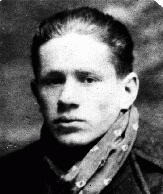You searched for: 金融游戏理财系统定制开发【TG���������@EK7676】平台包网搭建金融游戏理财系统定制开发【TG���������@EK7676】平台包网搭建39dbZbaSb9
<< Previous | Displaying results 541-550 of 619 for "金融游戏理财系统定制开发【TG���������@EK7676】平台包网搭建金融游戏理财系统定制开发【TG���������@EK7676】平台包网搭建39dbZbaSb9" | Next >>
-
Welwel Wainkranc
ID CardThe third of five brothers, Welwel was born to Jewish parents who lived 35 miles east of Warsaw in the small predominantly Jewish town of Kaluszyn. His father was a cattle merchant who purchased cows and sold the meat to butchers in the Warsaw region. Welwel spent most of his free time with a group of Jewish friends who lived in his neighborhood and who attended the same public school. 1933-39: Every summer evening Welwel, Abram Kisielnicki, and some other pals, like to stroll along Kaluszyn's main…
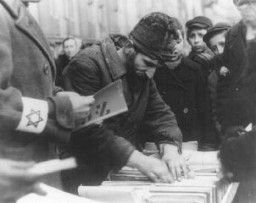
-
Thomas Elek
ID CardThomas was born to a Jewish family who moved to Paris when he was 6. His father's outspoken criticism of the fascist government and his affiliation with the Hungarian Communist Party led to the family's expulsion from Hungary in 1930. With the help of his father, a professor of modern languages, Thomas quickly learned French and excelled in school. He had a special interest in poetry and music. 1933-39: Thomas's father often argued against fascism, and he was greatly disturbed when Hitler became the…
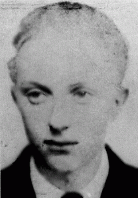
-
Chaim David Jegher
ID CardDavid was one of six children born to religious Jewish parents in Rona de Jos, a town in northwest Romania. The Jeghers subsisted through a variety of enterprises. Besides farming, they bottled their own wine and brandy and produced dried fruit for distribution in Romania and in parts of Czechoslovakia and Hungary. David's father also ran a local transportation and delivery service. 1933-39: Religious school was from 6:30 to 8:00 a.m. David's mother would wait outside the building with some breakfast for…
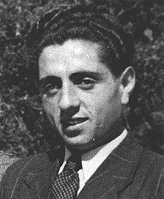
-
Ruth Gabriele Silten
ID CardGabriele was the only child of Jewish parents living in the German capital of Berlin. Her grandfather owned a pharmacy and a pharmaceuticals factory, where Gabriele's father also made his living. 1933-39: In 1938 the Nazis forced Ruth's grandfather to sell his factory and pharmacy for very little money to an "Aryan" German. After that, her father decided they should move to Amsterdam where it was safer for Jews. She was 5 years old and wanted to stay in Berlin. She didn't understand why she had to leave…
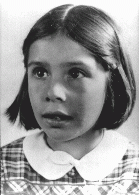
-
Fritz Silten
ID CardFritz was the youngest of two sons born to a Jewish family in the German capital of Berlin. In the late 1920s he earned a doctorate in chemistry and pharmacy. In 1931 he married Ilse Teppich, and in 1933 the couple had a daughter, Gabriele. 1933-39: Fritz worked in his father's pharmacy until 1938, when the Nazis forced them to sell the business for a fraction of its value to an "Aryan" German [Aryanization]. Leaving his parents behind was agonizing, but concern for the safety of his wife and daughter…
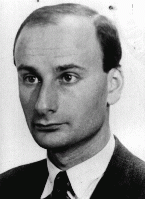
-
Ilse Silten
ID CardIlse, born Ilse Teppich, was the eldest of two daughters born to a Jewish family in the German capital of Berlin. Her father owned a dry cleaning business in the city. When Ilse finished secondary school, she was sent to a finishing school in Switzerland where she studied to be a photographer. In 1931 she married Fritz Silten. 1933-39: In 1933 Ilse gave birth to the couple's only child, a daughter named Gabriele. Five years later, when Fritz's father was forced by the Nazis to sell his business for a…
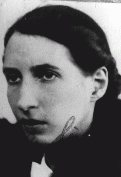
-
Ernst Silten
ID CardErnst was one of five sons born to a Jewish family in the Prussian city of Koenigsberg. He studied pharmacy and earned his doctorate in the late 1880s. Ernst spent several years as an apprentice before buying his own pharmacy in Berlin. Later, he also acquired a pharmaceuticals factory and supplied oxygen to hospitals. He married Marta Friedberg and the couple raised two sons. 1933-39: In Berlin, Ernst and his family lived in an apartment above their pharmacy and factory. In 1938 Ernst was forced to sell…
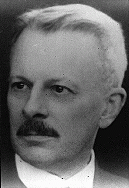
-
Ida Szczupakiewicz
ID CardIda was the oldest of three children born to a Jewish family in northeastern Poland in Malkinia, a town situated on the right bank of the Bug River. Ida's father was a grain merchant and her family lived in the same house that her grandfather had owned. 1933-39: Ida was 9 when Germany invaded Poland. At once her family hid on some nearby farms but a few weeks later they returned home. When their neighbor, her father's best friend, became a Nazi informant, her father had them each pack a small bag--they…
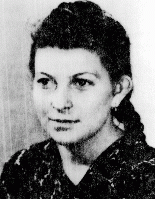
-
Marcu Butnaru
ID CardMarcu was born to Jewish parents in a small, ethnically diverse city in east central Moldavia [in Romania], a region known for its wine. He married at the age of 23, and had a son and a daughter with his wife, Anna. After World War I, Marcu followed in his father's footsteps by going into the wine making business. 1933-39: The price of wine was low due to the worldwide economic depression. Because the quality of Marcu's wine was excellent, however, it still fetched a good price. He spent much of his time…
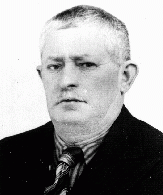
-
Ion Butnaru
ID CardIon was born to Jewish parents in a small, ethnically diverse city in east-central Moldavia [in Romania], a region known for its wine. Husi had a sizable and active Jewish population, which organized literary and artistic festivals and ran a local library. Ion's father was a wine maker and his side of the family had owned vineyards for at least three generations. 1933-39: Ion enjoyed helping his father in the family vineyards. He also did volunteer work at his local Jewish library. When he was 17, his…
